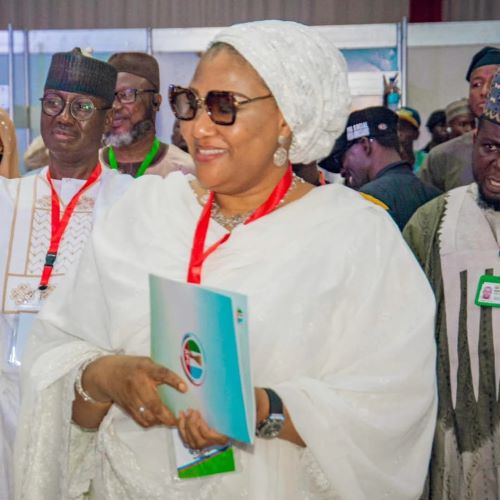In the dynamic circumstances of Nigerian politics, female politicians often face unique challenges and scrutiny. However, among the ranks of these formidable women, Hajiya Sa’adatu Garba Dogon Bauchi stands out not only as a Commissioner in the National Population Commission but also as a beacon of hope and inspiration for many, particularly the youth in Kaduna State and the broader Northern region. Her journey transcends the realm of politics; she embodies the spirit of resilience, empowerment, and mentorship, making her an icon and an Amazon in her community.
By Abdul-Azeez Suleiman
Hajiya Sa’adatu’s political career is marked by her commitment to public service and community development. As a Commissioner in the National Population Commission, she plays a pivotal role in shaping policies that impact the lives of millions. Her work is crucial, especially in a country where demographic data is essential for planning and development. By ensuring accurate population counts and advocating for the needs of marginalized groups, she demonstrates a profound understanding of the socio-economic dynamics of Nigeria.
Her political acumen is complemented by her ability to navigate the complexities of governance in a male-dominated arena. Hajiya Sa’adatu’s presence in such a significant position is not just a victory for women in politics; it represents a shift towards inclusivity and diverse representation in governance. She serves as a reminder that women can and should occupy leadership roles, challenging the status quo and inspiring future generations.
Beyond her political achievements, Hajiya Sa’adatu is revered as a mentor and guardian to the youth of Kaduna State and beyond. In a region where young people often face socio-economic challenges and limited opportunities, her influence is invaluable. She actively engages with the youth, providing guidance and support that empowers them to pursue their dreams and aspirations.
Her mentorship extends beyond mere advice; it encompasses a holistic approach to youth development. Hajiya Sa’adatu organizes workshops, seminars, and community outreach programs aimed at equipping young people with essential skills and knowledge. She emphasizes the importance of education, entrepreneurship, and civic engagement, urging the youth to take an active role in shaping their future and that of their communities.
In her interactions with the youth, Hajiya Sa’adatu embodies the qualities of a guardian. She listens to their concerns, understands their struggles, and advocates for their rights and needs within the political framework. Her ability to connect with young people on a personal level fosters trust and encourages them to aspire to greater heights.
Hajiya Sa’adatu’s influence extends beyond her immediate political role; she is an amazon of change in Kaduna State and the North. Her advocacy for women’s rights, education, and health has positioned her as a champion for social justice. She actively promotes initiatives that empower women, recognizing that the progress of society is intrinsically linked to the advancement of women.
Her work in the community reflects a deep commitment to social responsibility. Hajiya Sa’adatu is involved in various charitable endeavors, focusing on issues such as maternal health, education for girls, and poverty alleviation. By addressing these critical areas, she not only uplifts individuals but also strengthens the fabric of society.
Hajiya Sa’adatu Garba Dogon Bauchi is more than just a female politician; she is an icon, a mentor, and an amazon of change in Kaduna State and the North. Her contributions to politics, mentorship of the youth, and advocacy for social justice make her a remarkable figure in contemporary Nigerian society. As she continues to inspire and empower those around her, she paves the way for a future where women and young people can thrive, ensuring that her legacy will resonate for generations to come. In a world that often underestimates the power of women, Hajiya Sa’adatu stands tall, a testament to the strength and potential that lies within every individual willing to fight for a better tomorrow.
(Suleiman, a journalist, writes from Kaduna)


